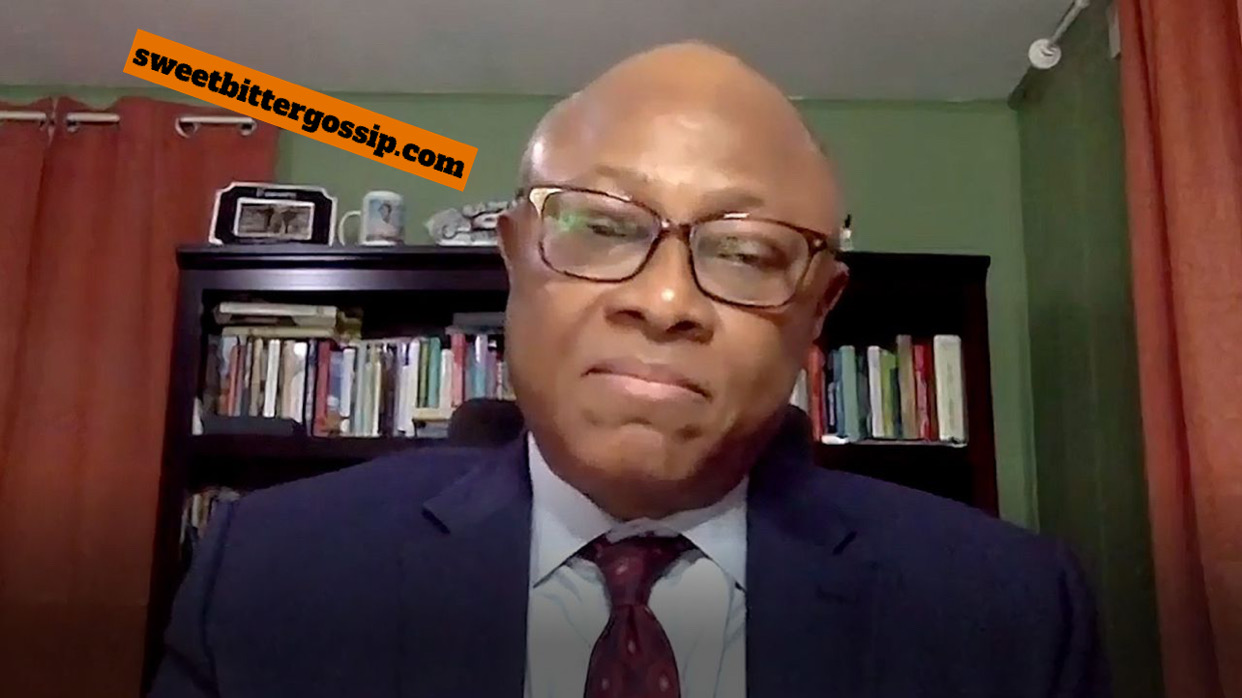A Professor of Social Ethics at Boston University, Nimi Wariboko, has raised concerns over the fear gripping Nigerians in the United States due to a widespread crackdown on undocumented immigrants under President Donald Trump’s administration. Wariboko shared his thoughts during a virtual appearance on Inside Sources with Laolu Akande, a socio-political program on Channels Television.
“There are a good number of Nigerians here who don’t have papers, and they are worried,” Wariboko said, describing the tense atmosphere in the Nigerian community in the U.S. since Trump resumed his second term on January 20, 2025.
He emphasized that pastors and community leaders are particularly concerned about the situation, as many undocumented Nigerians are now living in fear. “Are they going to be deported? Some of them are hiding. There is a palpable fear that they could be raided. If you quarrel with your neighbor, they might call the immigration enforcement unit,” he said. “They are fearful, they are angry, and they don’t know what will happen next.”
Trump has vowed to carry out mass deportations of undocumented immigrants, whom he often refers to as “criminal aliens.” His administration has already conducted raids in homes, schools, workplaces, and shopping centers, leading to the deportation of immigrants from countries like India and Guatemala. While some Americans support these measures, others have criticized them as too harsh.
Wariboko noted that many undocumented Nigerians feel abandoned by their compatriots back home. “They are saying that if these deportations continue, they will be sent back home. But does Nigeria have enough jobs to absorb them?” he asked.
Beyond undocumented Nigerians, Wariboko warned that even legal immigrants and U.S. citizens of Nigerian descent could face difficulties due to Trump’s proposed reversal of birthright citizenship laws. He urged the Nigerian government to take a proactive role in defending its citizens abroad, emphasizing that mass deportations could have serious economic consequences for Nigeria.
“They say even if Nigerians at home don’t like them, those abroad send billions of dollars home each year to sustain the economy and their families. Even for economic reasons alone, Nigeria should care about this,” Wariboko stressed.
He pointed to the World Bank’s 2023 report, which stated that remittances from Nigerians abroad totaled $20 billion, highlighting the critical role of the diaspora in supporting Nigeria’s economy.
“For many Nigerian families, without relatives abroad—whether in Europe, Asia, the United States, or Canada—their economic well-being would be far worse. If people understand that national policies should protect economic interests, they will see why defending Nigerians abroad is crucial,” he added.
Trump’s immigration crackdown is reminiscent of his first term in office. In 2020, Nigeria was placed on a list of countries with restricted entry into the U.S. due to non-compliance with identity management and information-sharing criteria.
Official records estimate that about 376,000 Nigerian immigrants lived in the U.S. as of 2015, making Nigeria the largest source of African immigration to the country. The U.S. remains a top destination for Nigerian youths and professionals seeking better opportunities, with the diaspora playing a significant role in Nigeria’s economy.
With Trump’s policies once again targeting immigrants, the uncertainty among Nigerians in the U.S. is growing. Many are now choosing to stay hidden, avoid conflicts, and live cautiously to prevent any risk of deportation.

